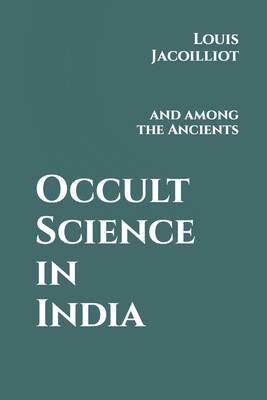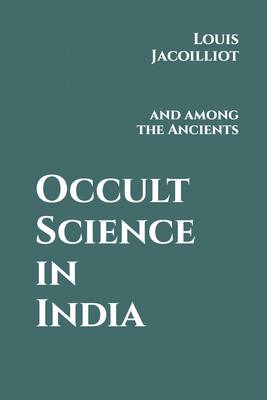
- Retrait gratuit dans votre magasin Club
- 7.000.000 titres dans notre catalogue
- Payer en toute sécurité
- Toujours un magasin près de chez vous
- Retrait gratuit dans votre magasin Club
- 7.000.0000 titres dans notre catalogue
- Payer en toute sécurité
- Toujours un magasin près de chez vous
Description
We will lay aside, for the present, our inquiries into the general subject of the primitive civilizations of the far East, and the people who have sprung from the Brahminic stock in the old world, in order to publish the result of such researches as we have been able to make, during our long residence in India, into the subject of occult science, and the practices of those who have been initiated into the sect of the Pitris, which is Sanscrit for spirits or ancestral shades. This is neither a doctrinal book nor a work of criticism. We are not called upon to decide, either for or against, the belief in spirits, either mediating or inspiring, which was held by all who had been initiated in the temples of antiquity, which is today the keystone of the philosophical and religious instruction of the Brahmins, and to which many of our Western thinkers and scientists seem inclined to assent. Being neither an advocate of this belief, nor the opposite, we are, on that account, better able to write its history. An ardent partisan would have been too credulous, and would have taken everything upon trust. A rabid opponent would have made it his business to disparage and discredit it. We shall give the words themselves, and set forth things as they actually were; we shall interpret and explain the Agrouchada-parikchai, which is the philosophical compendium of the Hindu spiritists; we shall tell what we saw with our own eyes, and shall faithfully record such explanations as we received from the Brahmins. We shall pay particular attention to the phenomena which the Fakirs produce at will, which some regard as the manifestations of a superior intervention, and others look upon as the result of a shrewd charlatanism. Upon this point we have but a word to say. The facts which are simply magnetic are indisputable, extraordinary as they may seem. As to the facts which are purely spiritual, we were only able to explain those in which we participated, either as actor or spectator, upon the hypothesis that we were the victims of hallucination, unless we are willing to admit that there was an occult intervention. We shall describe things just as we saw them, without taking sides in the dispute. These doctrines were known to the Egyptians, to the Jewish Cabalists, to the people of Finland, to the school of Alexandria, to Philo and his disciples, to the Gauls and to the early Christians, and, as in the case of the Hindus, they set them apart for the use of those who had been initiated. As for the ancient Chaldeans, the practice of popular magic and sorcery seems to have been the utmost limit of their attainments in this direction. They have also given birth to a peculiar system of moral philosophy, whose place in the general scale of the metaphysical speculations of mankind we shall take occasion to point out.
Spécifications
Parties prenantes
- Auteur(s) :
- Editeur:
Contenu
- Nombre de pages :
- 246
- Langue:
- Anglais
- Collection :
- Tome:
- n° 48
Caractéristiques
- EAN:
- 9798603935492
- Date de parution :
- 25-01-20
- Format:
- Livre broché
- Format numérique:
- Trade paperback (VS)
- Dimensions :
- 152 mm x 229 mm
- Poids :
- 367 g

Les avis
Nous publions uniquement les avis qui respectent les conditions requises. Consultez nos conditions pour les avis.






